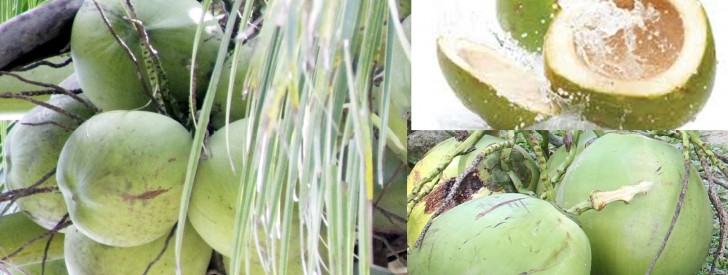
MoA and program contents of coco water project in Cam Sur disclosed in TWG meeting
September 17, 2014
There is no stopping to the coco water processing project, a priority project proposed by the Provincial Program Management and implementing Unit (PPMIU) of Camarines Sur under the Philippine Rural Development Project’s (PRDP) Investments in Rural Enterprises and Agriculture and Fisheries Productivity (I-REAP).
In a technical working group (TWG) meeting held on September 11, 2014, the Department of Agriculture Program Support Office (PSO) and Regional Program Coordinating Office (RPCO) 5, together with partner agencies–Philippine Center for Postharvest Development and Mechanization (PhilMech), Central Bicol State University of Agriculture (CBSUA) and the Provincial Local Government Unit of Camarines Sur, validated the Memorandum of Agreement (MoA) and Program Contract contents for the said project prior to its commencement by the last quarter of this year.
PRDP will provide P1.5 million to DA Regional Field Office No. 5 for the procurement of whole coconuts and polyethylene terephthalate (PET) bottles for coco water and the renovation of an existing building into a coco water processing facility per PhilMech’s specs. Dr. Elena B. De Los Santos has personally instructed Engr. Onofre Ruiz of the Intensified Building of Infrastructure and Logistics for Development (I-BUILD) to start the building renovation on September 15. DA RFO 5 will also work on the standard protocol on Operation and Management (O & M) of the coco water facility as well as its Food and Drug Administration (FDA) certification.
Fund support for the coco water processing project includes budget for CBSUA research proposals to be submitted to the DA RFO 5 on September 16-17. CBSUA’s expected research outputs include those from the economic and market studies, sensory, microbial and nutritional analyses as well as shelf life testing of coco water. Such information will be integrated in the business plan for the province’s coco water sub-project. CBSUA will also spearhead the formulation of the project’s Manual on Good Manufacturing Practice (GMP).
The PLGU of Camarines Sur, on the other hand, will assist the DA RFO 5, CBSUA and PhilMech on social preparation and social mobilization of small coco farmers as well as ensuring sustainable supply of whole coconuts. They will also identify coconut suppliers and potential Proponent Groups (PGs) or producer groups like cooperatives, non-government organizations (NGOs), and small and medium processors with a legal personality, as prospective partners in the coconut water processing enterprise.
As the developer of the coco water pasteurizer-chiller, PhilMech will provide, install and test run the coco water facility by the last quarter of 2014 to coincide with the launching and signing of program partnership. At least four well-trained DA RFO 5 personnel and staff are expected to operate and manage the facility by the 2nd week of December, this year.
According to De Los Santos, a cost-reduction scheme such as buying coconuts from nearby areas to save on transport cost will be implemented during the course of the coco water project research and development to ensure that the objectives of the project are attained with the minimal budget to be provided. Very minimal income is expected to be generated from this endeavor since most of the marketable processed coconut water that will be produced will be used for product promotion purposes.
The TWG meeting for the pilot-testing of Philmech-fabricated coco water processing equipment is the next step taken by the DA RFO 5 following the site visitation and meeting with PhilMech Executive Director Engr. Rex L. Bingabing and PhilMech Chief Science Research Specialist Dr. Ofero Caparino last September 3.
First quarter reports from the Philippine Coconut Authority (PCA) boast of 300 percent increase in coco water export with 4,498,158 liters equivalent to $4,783,443 earnings. Coco water export to the U.S. registered the highest increase in value with $3,940,487 followed by Netherlands with $208,602 and Australia with $80,430. Coco water, also known as “Mother Nature’s sports drink,” is a natural beverage that has more potassium and less calories, sugar and sodium than many sports drinks. It is also rich in vitamin B, electrolytes and glucose and has been found ideal for intravenous rehydration. (Annielyn L. Baleza, I-SUPPORT InfoACE Unit, DA-RAFID 5 with reports from Emegene M. Manondo and Edgardo Dela Torre)
